1 View
NYT: Global Warming to Submerge 2,400 Miles of Gulf Roads
by
Robert Farago
(IC: employee)
Published: June 17th, 2009
Share
In 50 to 100 years. But don’t let that un-alarm you. The New York Times parrots—I mean reports—on a new study by the Obama Administration’s U.S. Global Change Research Program. The report predicts a list of bad, bad things that are going to happen thanks to “unequivocal” global warming. Hang on, are they implying that there’s another kind? Anyway, the Gray Lady points out that “Earlier cuts [in greenhouse has emissions] will be more effective than comparable later cuts, the document adds. Without efforts to limit emissions, the United States could warm 7 to 11 degrees Fahrenheit by the end of the century. Cutting emissions could hold that increase to just 4 to 6.5 degrees Fahrenheit.” Balmy, barmy or Barney?
Robert Farago
More by Robert Farago
Published June 17th, 2009 11:58 AM



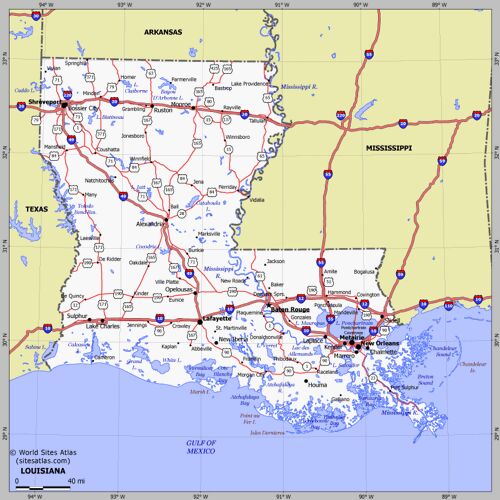















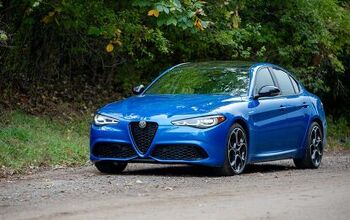


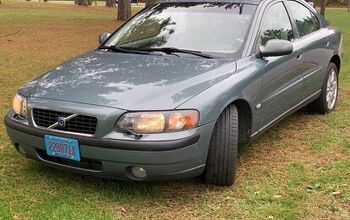

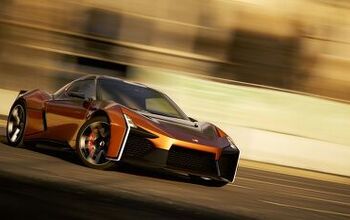



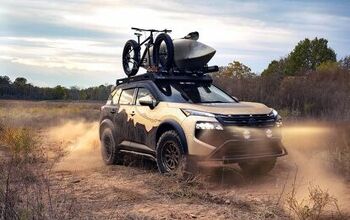




Comments
Join the conversation
ZoomZoom, Let's see... I bike to work frequently. Not all the time; I'm certainly not doing it in the winter in MN, principally because I share my route with cars and I'm not doing that when ice is present. I made arrangements for changing at work, so that I can bike in more conditions. I often bike my errands on the weekends. It helps that I like to bike. I'm looking for an electric bike to extend my reasonable biking range. Biking is frustrating, though, as sticking to a trail, which I like to do for safety reasons, usually involves a longer route than using the street. To change between certain principal trails nearby includes going over an extra, rather tall, hill. It takes time and, when the weather is at all warm, makes for a lot of sweat. The alternative is, basically, to bike on a highway. I feel lucky to have the trails we do have. As a bonus, some of them are converted rail trails and the grades are great. We live within 3 miles of my workplace and within walking distance of elementary and junior high schools and my wife's workplace. We chose this location very deliberately, partly to avoid excessive dependence on cars and commuting but also to spend more time with the children and to be available for them. A 5 minute commute means I can have lunch with the family in the summer time or even in the school cafeteria, sometimes. My wife didn't work until they were all in school full time and she did not work summers and she found a local job, too. We do have a minivan but we have 4 children, so it's not like we don't have a very regular use for it. Our other recent cars have been a variety of 4-cylinders, all used, which get good fuel economy. A Prius is probably next but we don't drive all that much (typically 8K/year, which includes the family trips to the coast) and all of the cars work well, so there's no rush to buy one. For medium distance intercity trips (200-500 miles), we try to rideshare with others and the kids do that, too. We've used the intercity bus (there's a treat). The price works out about the same as one person traveling in the car. The schedule's pretty awful, though. If two of us are going, we use the car. We don't use air conditioning. We insulated the house a few years back but solar, due to the way the house is constructed, really is not an option. We don't have a Southern exposure that would serve well for any kind of solar installation. Still, I like solar a lot. I find it frustrating that there's so little of it here in this town. The size of the town has quintupled since we moved here 2 decades ago. The idea of conservation really should have been firmly implanted by that time but the Ray-guns years wiped out any consideration of energy conservation awareness that might have lingered from the Carter years. When the President orders the solar panels ripped off the White House, what message does that send? In any event, 80% of the housing stock in this town is less than 20 years old and there's not only practically zero solar heat/hot water, there's zero consideration of siting for passive solar gain. Houses typically have enormous windows on the back side, whether they face North or not. People will pony up for a 3rd stall on the garage and granite countertops for their McMansions but they won't spend a bit more to site and build a house, which will stand for 40 or 50 years or more, that gets a significant part of its energy budget from the Sun. In building this McMansion, they've committed to heating a massive space with natural gas for decades to come. They'd save money in the long run but, since we all flip houses every 3 to 5 years, the long run is meaningless, isn't it? As for using mass transit... what mass transit? I could take the bus to work but the bus trip takes 3X longer than it does to walk (which I have also done). I have been known to use it for some trips; I drive to a commuter lot and take mass transit from there. I recently looked carefully at taking the bus to a shopping center about 15-20 miles away and concluded it was quicker to bike. The kid's commute is served by reasonably frequent mass transit, so he got a bus pass and only needs to walk about a mile and a half besides the bus trip. We've cut down on the amount of meat we eat. Of course, this all amounts to a pisshole in the snow, as my lower than average carbon fuel use helps depress prices which just encourages people who couldn't care less about the possibilities of global warming to consume more. So, really, what's the point? Why don't I just buy myself a nice luxury car, a speed boat, ATV and snowmobile and enjoy a life of recreational use of non-renewable fuel? The brunt of the troubles will be borne by future generations. The cumulative actions of all the others in my generation means my kids and grandkids are screwed, anyway, so why go to any lengths to fight it?
One point of contention about environmental issues is that some fundamentally do not believe in our ability to be destructive. Take Chernobyl for example, a massively localized, biologically damaging radioactive release. However, given the absence of human activity in the interim period, the area and surroundings have grown to be a forest teeming with wildlife. Perhaps not exactly great habitation by modern standards, but also not exactly how most think of an unpopulated radioactive wasteland: map. The lesson here seems to be that humans are worse for the enviro than somewhat toxic radiation levels.
To circle the prior post back to the topic in an ironic manner, nuclear is one of possible solutions to the climate crisis. New reactor designs are quite safe, in fact demonstrably less hazardous than pretty much any fossil fuel source. But good luck getter the plebs to accept that when they won't even touch "irradiated" meat.
GW is over! Ranchers have found a new additive they are adding to cow feed to stop their "Belching". We are now safe, Back to Living.